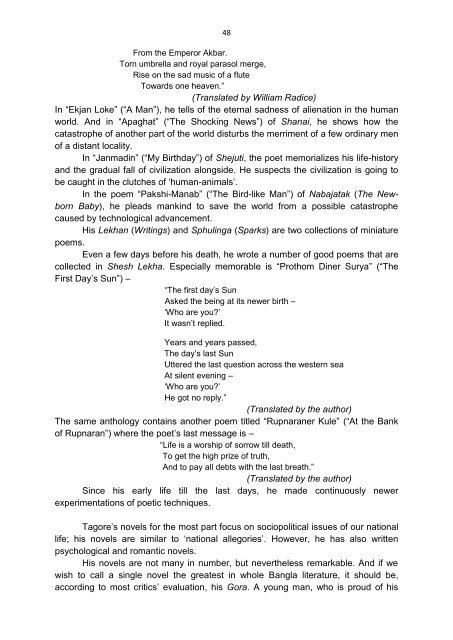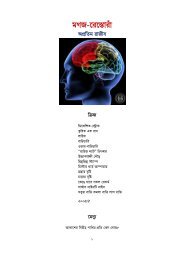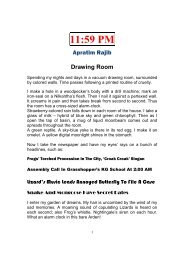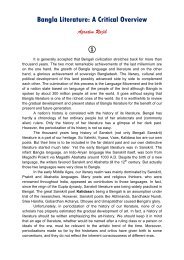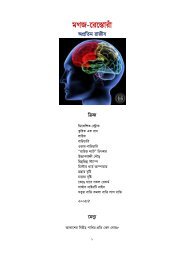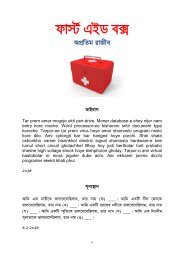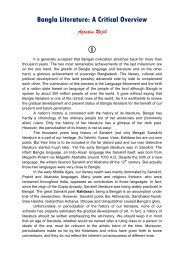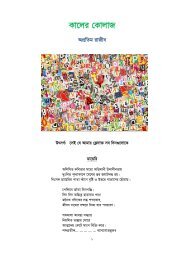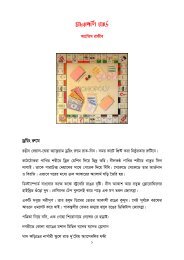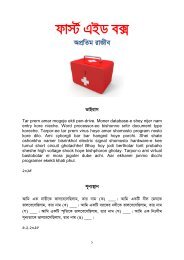BLiterature
Create successful ePaper yourself
Turn your PDF publications into a flip-book with our unique Google optimized e-Paper software.
48<br />
From the Emperor Akbar.<br />
Torn umbrella and royal parasol merge,<br />
Rise on the sad music of a flute<br />
Towards one heaven.”<br />
(Translated by William Radice)<br />
In “Ekjan Loke” (“A Man”), he tells of the eternal sadness of alienation in the human<br />
world. And in “Apaghat” (“The Shocking News”) of Shanai, he shows how the<br />
catastrophe of another part of the world disturbs the merriment of a few ordinary men<br />
of a distant locality.<br />
In “Janmadin” (“My Birthday”) of Shejuti, the poet memorializes his life-history<br />
and the gradual fall of civilization alongside. He suspects the civilization is going to<br />
be caught in the clutches of ‘human-animals’.<br />
In the poem “Pakshi-Manab” (“The Bird-like Man”) of Nabajatak (The Newborn<br />
Baby), he pleads mankind to save the world from a possible catastrophe<br />
caused by technological advancement.<br />
His Lekhan (Writings) and Sphulinga (Sparks) are two collections of miniature<br />
poems.<br />
Even a few days before his death, he wrote a number of good poems that are<br />
collected in Shesh Lekha. Especially memorable is “Prothom Diner Surya” (“The<br />
First Day’s Sun”) –<br />
“The first day’s Sun<br />
Asked the being at its newer birth –<br />
‘Who are you?’<br />
It wasn’t replied.<br />
Years and years passed,<br />
The day’s last Sun<br />
Uttered the last question across the western sea<br />
At silent evening –<br />
‘Who are you?’<br />
He got no reply.”<br />
(Translated by the author)<br />
The same anthology contains another poem titled “Rupnaraner Kule” (“At the Bank<br />
of Rupnaran”) where the poet’s last message is –<br />
“Life is a worship of sorrow till death,<br />
To get the high prize of truth,<br />
And to pay all debts with the last breath.”<br />
(Translated by the author)<br />
Since his early life till the last days, he made continuously newer<br />
experimentations of poetic techniques.<br />
Tagore’s novels for the most part focus on sociopolitical issues of our national<br />
life; his novels are similar to ‘national allegories’. However, he has also written<br />
psychological and romantic novels.<br />
His novels are not many in number, but nevertheless remarkable. And if we<br />
wish to call a single novel the greatest in whole Bangla literature, it should be,<br />
according to most critics’ evaluation, his Gora. A young man, who is proud of his


